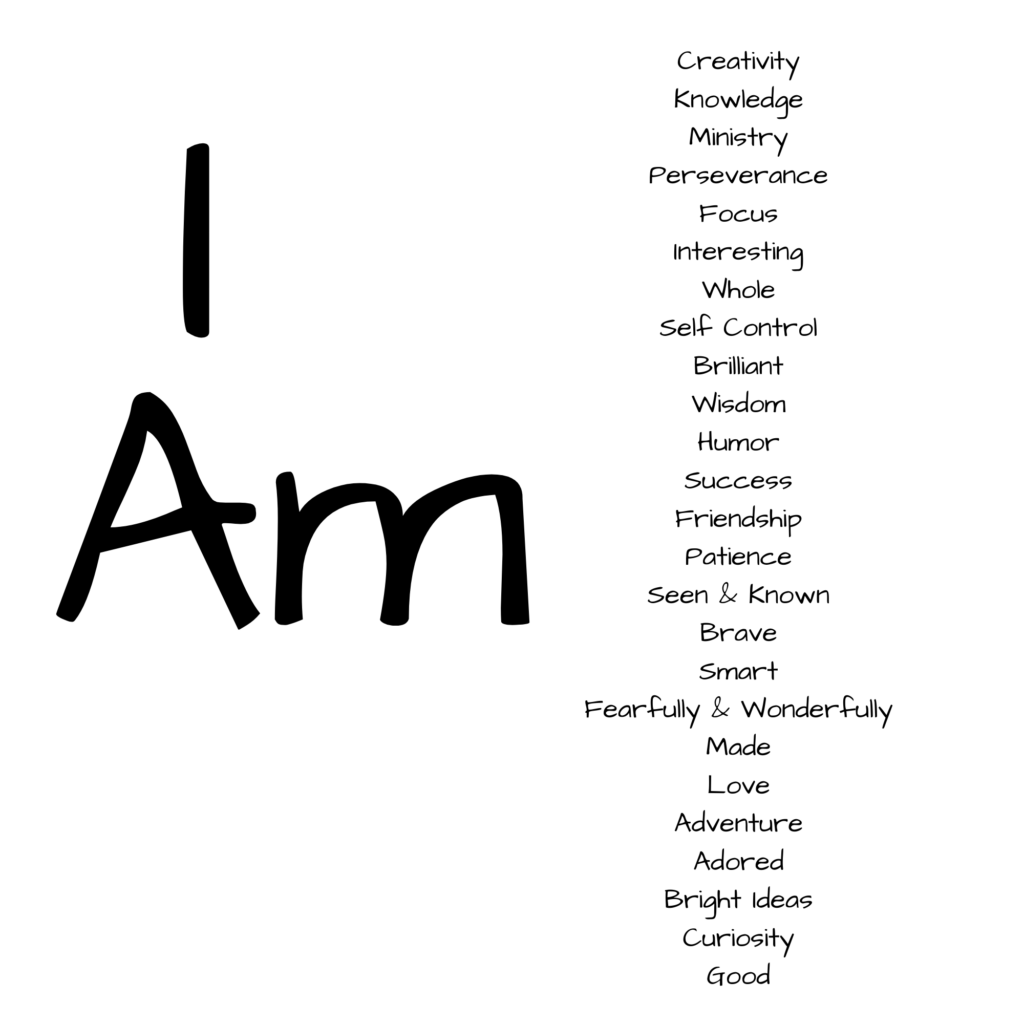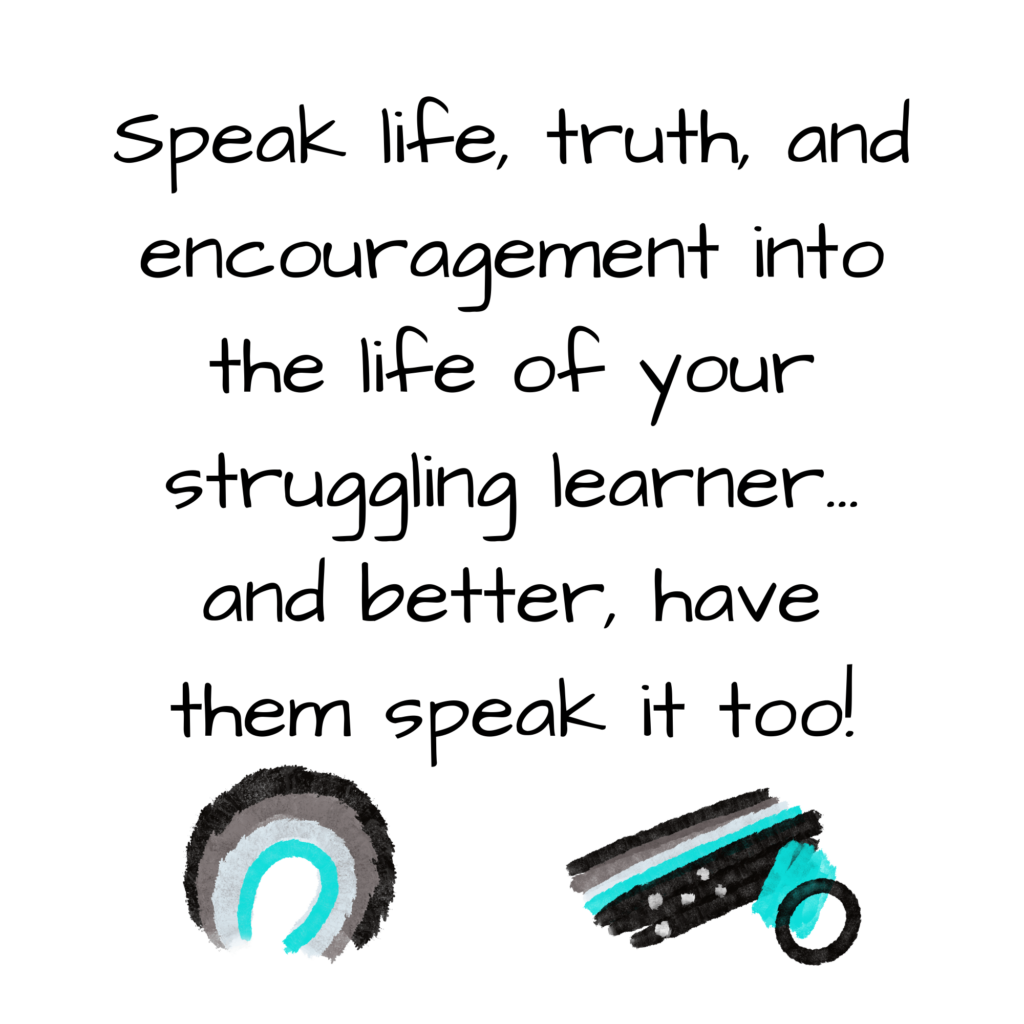
Let Them Google It: Dear Mom of a Struggling Learner
Let Them Google It: Dear Mom of a Struggling Learner
If you have a struggling learner, the mom struggle is real.
Let me guess some of your struggles.
- Things will be hard for my baby.
- This is crushing their spirit… their sweet, beautiful, perfect spirit.
- He/she will be alienated.
- How will this impact their future?
Those are just the first four. I know, there are about 10-5,000 more. Hear me when I say, I am sorry, and while I would never say I totally understand, I get it.
One of the things I hated to hear was, “Oh gosh! I know EXACTLY how you feel. My Ricky or Jane didn’t read until he/she was XX! And now they are a pediatric surgeon!”
Perfect.
I am happy for Ricky Jane. But you don’t get it. And what they didn’t get was, this was my baby, my sweet, beautiful, perfect baby boy. He wasn’t a statistic, he wasn’t the norm or the un-norm. This was John-John.
Having been a struggling learner myself, I knew the repercussions of struggling. I knew about missing recess when you couldn’t finish when everyone else finished their math facts worksheet. And while I couldn’t bear for John to miss recess, more than that, I couldn’t bear the part where missing recess meant sitting alone at lunch because you weren’t present when the latest “club” started.
Intermission… (sobbing, rocking back and forth and eating raw cookie dough.)
Sorry, I am back.
So here on the other side, with a master’s degree of my own and a grown, competent, loyal, and dear Marine Baby deploying this morning, I want to offer you a few tidbits of advice. I did these myself for my son. At the time it felt like cheating or lowering the bar, but that was my own insecurities (note above, sobbing, rocking back and forth and eating raw cookie dough.)
The fact is they not only worked, but they are also totally legit. And I can back up my theories.
This is one thing I absolutely want you to be able to embrace right out of the gate, accommodations are not lowering the bar. What does it mean to learn something? Learning is just the intake of information or skills through experience, study or being taught.
What we have done as a society is studied learning, (bravo!) and then classified it by age (uh… well?) Then we have grouped those ages into “got it” and “not getting it” and “Uh-oh.” See, I have a Master’s in Education so I know things.
And if I invited you to look at my study notes from graduate school you might say, “Wow. They are really colorful! Wait… is that written in crayon?”
Yes, yes it is. Because that is how I learned. I learned by coloring. I memorized psychological terms and methodologies in order to pass tests and keep all my acquired learning by coloring.
To this day, I smell crayons when I get really stressed.
Unfortunately, this often wasn’t “allowed” in certain environments.
And if you homeschool, you get to really go to town with outlandish and “bend the rules” learning. But if you don’t, your home, after school, is the place where learning can be taken to a new level for your struggling learner.
The best advice I can give anyone when it comes to helping a struggling learner is this, do whatever it takes to help your child succeed (without resorting to violence, of course.) If you are considering violence, please read my post Mom Boss: Effective Advocacy first.
So doing whatever it takes comes with this brain alert… is this cheating? Or, am I doing a disservice to my struggling child by using these helps?
No.
You are not cheating and you are doing them a service.
Hear me out, your struggling learner is only struggling according to a set of man’s rules.
I am not bucking the system when I say this, your child is exactly who you know them to be. They are indeed the sweet, beautiful, perfect spirit you say they are.
And 300 years ago the standard of learning and understanding was different. Your child could be elected mayor at 14 if he or she knew how to boil water over an open flame. Getting outside of your head is going to bless the inside of your child’s head.
Granted, when in the throes of institutionalized education your 15-year-old is going to meet with some jeers and stares if they ask to take their biology test in green crayon, write their answers in shaving cream, or sing them instead of write them. However, these are all fantastic ways to prepare them for their upcoming exams.
When John was 11 and enrolled in a small Classical School, he had one teacher that all but threw tantrums at the mere idea that John take his exams orally. The ignorance in that situation was simple to most onlookers. He made a 100 on his exam orally. John absolutely knew the material.
When he wrote the answers, he scored a 42.
And this beast of a woman couldn’t be dealt with. But I can tell you this, John can still tell you all of those answers. He might be able to write them out at 22-years-old, and he would probably still make a mockery of the spelling. But he knows stuff. Also, autocorrect and spell-check. Let us pay homage.
So ask yourself this question, “what years was Teddy Rosevelt in office?”
Don’t know?
And are you functioning in society?
Yeah, me too.
Honestly, whether you were a struggling learner or not, how much of your elementary, intermediate, and high school education do you recall? Furthermore, how much of it impacts your daily life?
Right.
So when I say let them Google it, I mean it. Because researching answers is a lot more effective than having your child rotely read off a worksheet and then regurgitate and forget it or worse just never get it. When helping a child learn a new concept or memorize something, this is where you can be most helpful.
With John, we watched videos, we listened to repetitive recordings, and we built answers in playdough, drew them in shaving cream and sidewalk chalk, and many other physical activities that made concepts concrete for him.
Which brings me to calculators. Off the top of your head, what is 9,875 divided by 247?
Ok, you probably do know how to do long division. But more than likely you would use your phone or calculator to solve for X. Don’t get me started on letters in math. That nonsense is not from Jesus.
So we would trudge through math worksheets with John and then we would let him check his answers and find his mistakes with a calculator. This did him two services, well three. He did have to get through the tedious work of long division. Then he was learning to use a calculator, which was the skill he really needed because, in the real world, he would be using a calculator. ANNNNND he was decoding where he was making his mistakes and after a time, stopped making them.
Here is the argument against using technological advances in learning: What if there is an apocalypse and we don’t have calculators.
Okay, if we have an apocalypse and don’t have calculators, under what duress will we HAVE to know what 9,875 divided by 247 is? And if we really have to know, maybe one of the other remaining apocalyptic survivors will be good at math.
One can hope.
The bottom line is this, this generation will not have to work as hard for answers in their adult life. The answers they will need, the skills that advance them will most likely not be something that has evaded them their entire lives, i.e. I am not a math professor or accountant. The things that John excelled at as a child are the passions he still pursues.
So, what is your child great at? What is their passion? And how can that passion be translated into a vessel for them to survive childhood in spite of their “struggles?” As an artist, that is how I passed biology and American History. Don’t talk to me about Algebra.
Is your child a writer? Have them write a historical fiction piece with their history facts embedded in the story.
And this, I absolutely will hang my metaphorical hat on, if your child is a “struggling” learner, your stress will impede progress. Your enthusiasm for what they are good at, your attempts to offer them an alternate route is going to ease a lot of the pressure. No, you can’t abolish standardized testing, trust me I tried. But, standardized testing does not get to dictate the totality of your baby’s success.
This is best conveyed in the opposite of what they hear out in the “real” world. I know this helped John. We constantly reminded him that childhood and scholastic achievement were just a blip on the radar of his life.
And actually this is what we also did when we had a child struggling with delinquency. We focused on the truth of who they were, not the constant banter of how they were failing.
I fully believe that one of the greatest pitfalls we face when dealing with a struggling child is focusing on the past instead of blazing a trail into the future. When your child was learning to walk, when they fell did you say, “the neighbor’s baby is already walking!” And as they progressed we don’t say, “remember a few weeks ago when you couldn’t take three steps without grabbing the coffee table?” No, we were all about the praise of how close they were to running. We would applaud and gush! “LOOK AT YOU! YOU ARE WALKING!” Followed by, “You’ll be an Olympic Gold Medalist!”
And then we meet with our first diagnostic test. We start tiptoeing around the facts and worrying about what is lacking instead of praising the truth of who these human beings are!
Oh, but if I could come to your house and cheer with you, I would! The great minds all had some struggle, struggle builds muscle. The discouragement comes when we keep our eyes on the struggle and keep our minds on the lack. There is sooooo much more to our babies than these things that label them less than.
And I know, those voices are loud. But thanks be to God, your voice matters more. An English teacher can find all the mistakes and diagram the sentences. But unless your child LOVES diagramming sentences, this is just a thing they have to get through until the next big thing.
Again, I propose that we as mothers can ease some of the burdens for our struggling learner by easing up on the burdens. Thoughts become things. So if your child hears, “You are brilliant! Oh my gosh your are do diligent! I love the way your mind works, you lack nothing!” they will blossom.
On the other hand if the constant banter is, “I am so worried. If you get held back we will…” Or “Well you are dyselexic, you’ll have to struggle with that,” they will be worried too.
See school for what it is, a season in your child’s long life of acquiring knowledge or skills through experience, study or being taught. The stuff that matters, the stuff they will take with them and succeed at as adults will be the things you praised them for, the truth you spoke over them, into them, and with them.
Overall, not tapping into modern technology to help them because “that is not how it was done when I was in school…” is like never using your microwave because it only became available to the masses in the 1960s. Use whatever method you can to help your child succeed, then teach them that every failure is a blessing in their endurance. By all means, never punish a struggling learner for struggling.
They may be afflicted with a disability or struggle, but they are not defined by disability or struggle.
[bctt tweet=”They may be afflicted with a disability or struggle, but they are not defined by disability or struggle.” username=”httpstwittercomjamiamerine”]
You know that is the whole truth.
Because you know exactly who they really are.
Jesus be all over you. Love, Jami
Get your I am Cards for Struggling Learners here now! Speak life and truth into your baby!
I have made this set of “I am cards” from journal entries I had when John was just a boy. I am in awe of the work that God had before John and I even realized it was to be. Things no eye had seen. literally no ear had heard. I know that you might be scared with all that is before you with a struggling learner. So, I pray these cards offer you hope in the future God has planned for you and your child.
I recommend printing these on card stock and cutting them in half.







